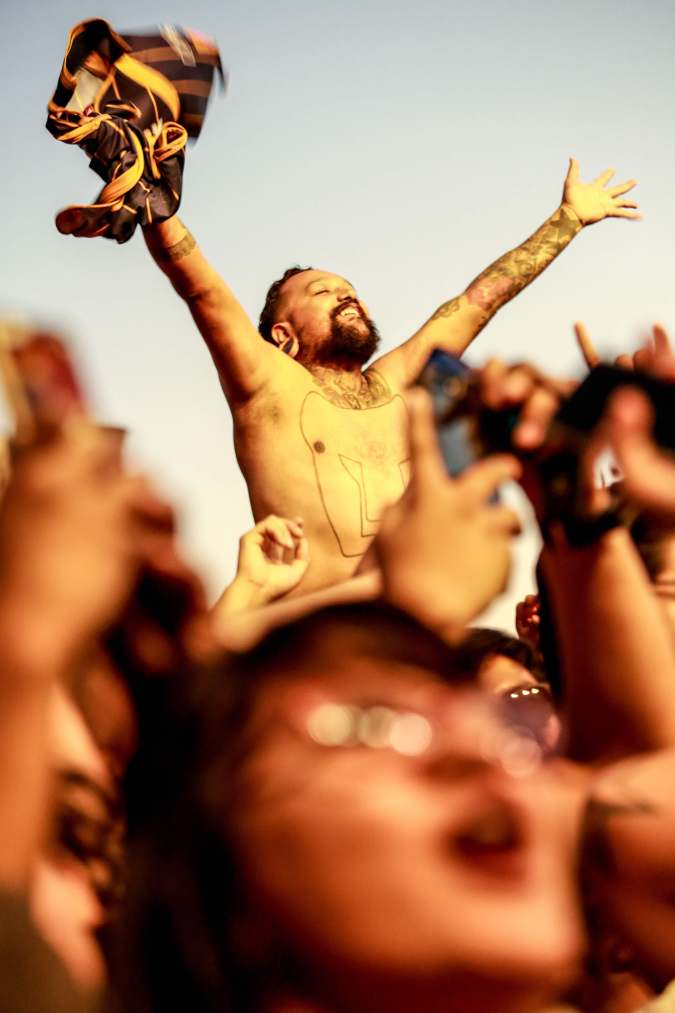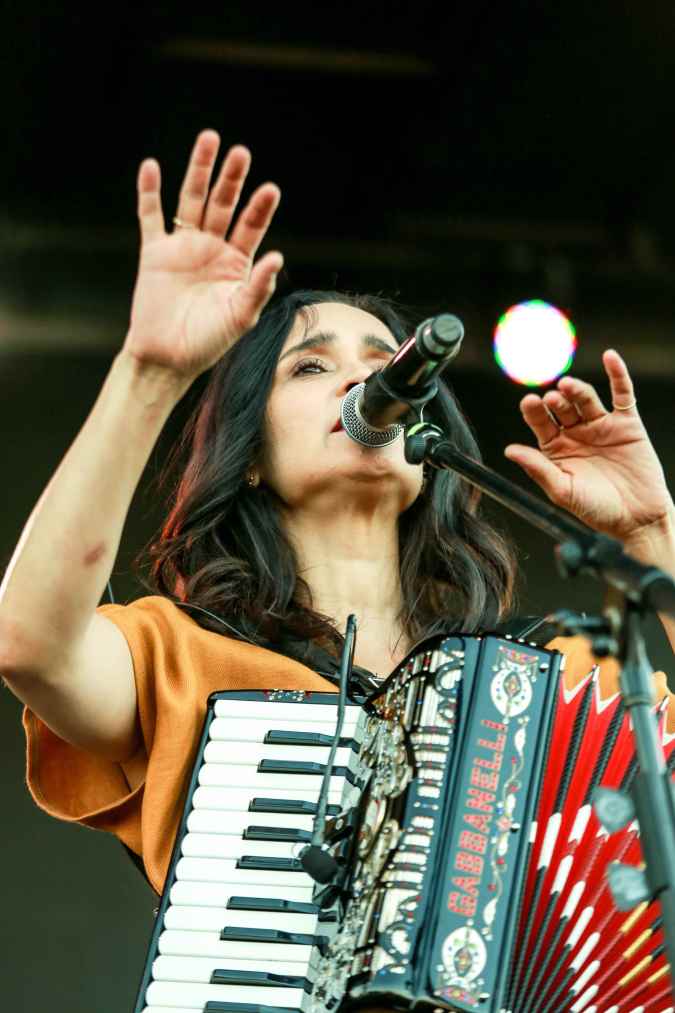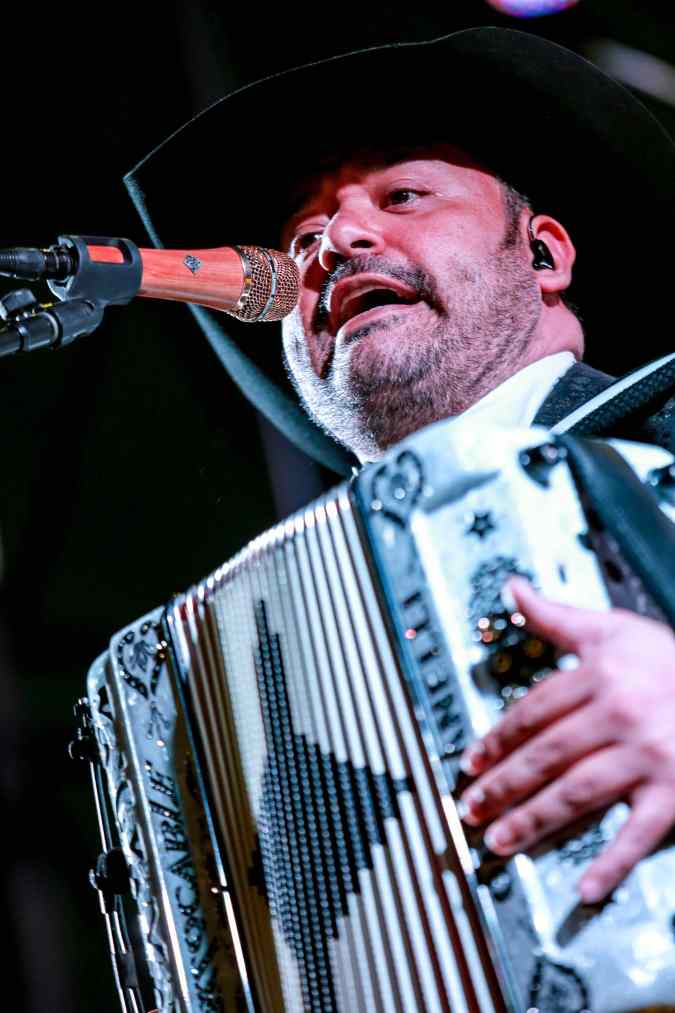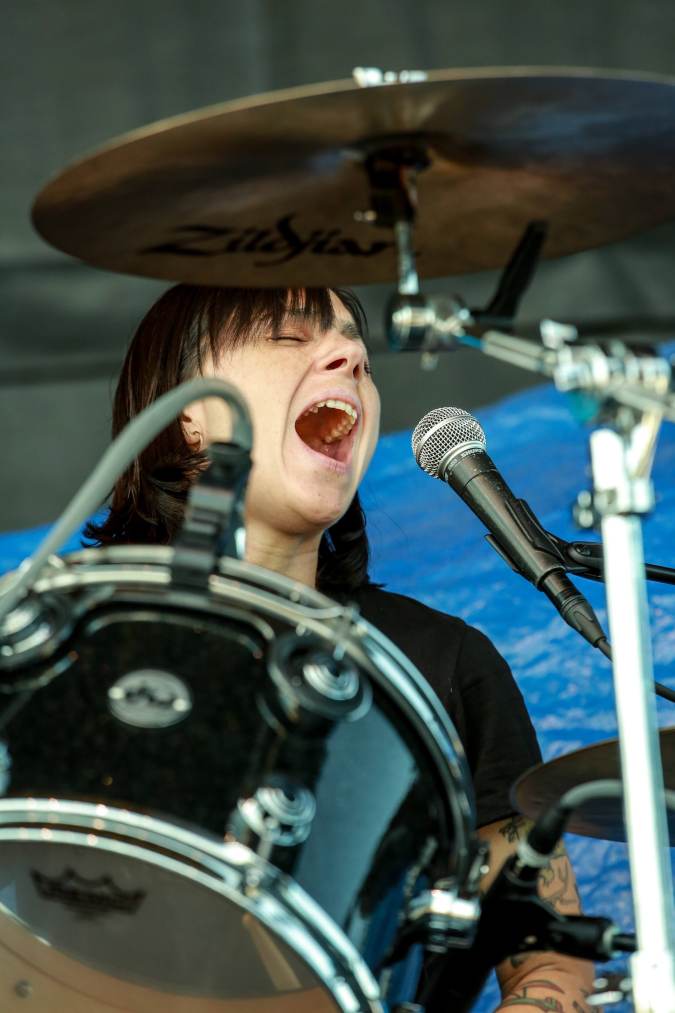Being a music festival junkie is an endeavor of love. Those of us willing to persevere through punishing heat, crowded shows, and outrageously priced concessions are also usually rewarded with performances by our favorite artists, while making exciting discoveries along the way. In many cases, these festivals represent a personal point of view – collages of our tastes and the trends we follow, and an opportunity to share the music we’ve been gushing to our friends about for years.
That validation is why Chicago’s Ruido Fest has earned a rare place in the pantheon of Latino music festivals. With an excellent curatorial track record, Ruido Fest has demonstrated a knack for blending mainstream sensibilities with nostalgia, buzzy indie flair, and local tastes, without ever relying on Anglo artists. As organizers explained to Billboard in 2015, the festival was created as “a destination for Latin alternative music,” since it “has been generally under-served in many ways.” However, this year’s lineup announcement befuddled some fans with a roster that heavily relies on safe – bordering on stale – rock en español acts, a reduced number of international indie artists, and a meager presence of women. For those who work hard to support independent Latinx artists who rarely appear at U.S. festivals, it’s frustrating to see rock en español mainstays continue to get booked year after year.

So what happened?
When Ruido Fest’s inaugural edition was announced back in 2015, the festival’s commitment to booking rock en español acts was clear; it is partially produced by Chicago’s staple punk and rock festival Riot Fest and radio program Rock Sin Anestesia. This year, the festival is bringing classic acts like Caifanes, Plastilina Mosh, and Panteon Rococó, which speak directly to the heart of Ruido’s rock-loving core audience. Given this established following of rockeros, not all fans are unhappy with the lineup. If you visit Ruido Fest’s Facebook page, the comment section for their posts are overwhelmingly positive.
Out of 39 total acts on the bill, only seven are comprised of all-women.
But for discerning fans that have come to expect a certain degree of boldness and diversity in the festival’s curation, there are also some glaring holes. Out of 39 total acts on the bill, only seven are comprised of all-women, while six more bands feature gender-diverse rosters. The only headlining woman on the bill’s top tier is Chilean hip-hop trailblazer Ana Tijoux, while the undeniably flourishing world of Latin American indie is represented by few more acts than Miss Garrison, Playa Gótica, and Combo Chimbita, all of which are also fronted by women.
In an interview with Remezcla, Ruido Fest co-founder and top booker Eduardo Calvillo was able to lend some insight into this year’s creative process. “Something we were very mindful of was the anti-immigrant sentiment going on in the U.S.,” he says over a phone call. “Many of the bands I was in talks with were denied work visas, while others were uneasy about coming on tourist visas.” Calvillo partially acknowledges this year’s lack of innovation, adding that it “stems from a fear of being unable to deliver on the lineups we promise, so we played it a bit safer. This puts us in a kind of wheelchair when we really wish we could be running.”

Calvillo claims artist availability was a major challenge this year, especially when asked about the lineup’s scant amount of women. “I’m glad you ask because that was not on purpose,” he begins. “We reached out to the management and agents for Francisca Valenzuela, Carla Morrison, and about another 10 artists, and they’re the ones who said no. It’s not that we didn’t want to book more women. On the contrary, and especially after Ruidosa highlighted us in their 2016 and 2017 study about female presence in Latin American festivals, we took that as a sign we were on the right path.”
The study Calvillo references finds Ruido Fest in a fifth place tie with Chile’s Nómade. It ranks solo female bookings at Latin American festivals at 15.8 percent, while a study ranking overall female festival presence found Ruido Fest in fourth place, at a rate of 66.7 percent men versus 33.3 percent women. These figures are dismaying regardless of ranking, something artists and fans have been blasting for years, and it still doesn’t entirely excuse the jarring disparity.
“The biggest names have already been with us,” he adds. “We’ve brought Natalia [Lafourcade] and Julieta [Venegas] and we can’t have them every year. We want to make sure that whoever we bring in falls within the spirit of the festival.”

Hiding behind the excuse of genre and themes loses steam when the end product is so uneven. Acts like Ile and La Mala Rodríguez already have well-cultivated fanbases in Chicago, while artists like Alice Bag and Ely Guerra would easily fall in line with the festival’s rock-oriented vision.
“We want to make sure that whoever we bring in falls within the spirit of the festival.”
In the past, we’ve criticized Ruido Fest for its reluctance to embrace genres beyond rock, but as the festival enters its fourth year, it’s important to consider the trajectory and body of work they have presented. 2017’s lineup was overrun with remarkable indie talent and a bold headlining slot by norteño icons Intocable, while this year’s inclusion of cumbia legends like Los Ángeles Azules and Celso Piña feels like a much-needed nod to the breadth of identities and age groups attending the festival every year.
Ultimately, it seems festival organizers are open to dialogue, whether it carries praise or criticism. The 2016 booking of six Chicago-based bands and the blowback received in 2017 when local talent was completely shunned resulted in this year’s lineup featuring the most local acts in Ruido’s four-year history. Chicago’s Puerto Rican community, the second largest Latino ethnic group in the city, is also consistently underserved with few more Boricua acts than AJ Dávila and Buscabulla having graced the Ruido Fest stage. Considering the bevy of talent at their disposal, inexpensive travel costs, and lack of migratory bureaucracy, it would be wise of organizers to further explore this avenue.

Ruido Fest is a platform too important for the visibility of Latino music in the U.S. for us to ignore or dismiss these concerns, but we must draw a line between dissatisfaction and knee-jerk outrage. Towards the end of our conversation, Calvillo quoted an online fan who said, “People in Chicago complain about the lineup, but what wouldn’t we give for a festival like that, here in Oklahoma.” Indeed, these types of events are few and far between, and we must protect them, but we also demand quality and accountability.




